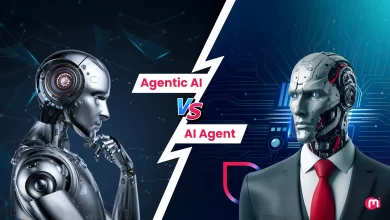This man was killed four years ago. His AI clone just spoke in court.
The use of generative AI tools in legal proceedings is becoming increasingly common, despite previous pushback from judges. Initially, AI appeared in courtrooms through fake cases created by chatbots, but now, more sophisticated AI video and audio tools are being utilized. One recent example involved the use of an AI-generated deepfake in an Arizona courtroom, where a video of a deceased crime victim was presented to address his alleged killer. The deepfake appeared to bring the victim back to life, delivering a message to his killer.
In the video, the AI replica of the victim, Chris Pelkey, expressed forgiveness towards his killer, Gabriel Horcasitas, stating that they could have been friends in different circumstances. The judge ultimately sentenced Horcasitas to 10.5 years in prison for manslaughter, influenced in part by the impact of the AI-generated video.
This case follows another instance in New York where a defendant, Jerome Dewald, used a deepfake video in court to aid in his defense. Dewald presented a video of a man speaking to the camera, which was later revealed to be an AI-generated deepfake. The judge reprimanded Dewald for not disclosing his use of AI software but Dewald claimed he used it to articulate his defense more effectively.
The use of generative AI in legal proceedings has raised concerns about deception and credibility. In previous cases, lawyers have been sanctioned for submitting fake case citations generated by AI tools. Despite these challenges, the trend of using AI in courtrooms is likely to continue. Federal judicial panels are seeking public comment on rules to regulate AI-assisted evidence, and Chief Justice John Roberts has acknowledged both the benefits and drawbacks of using generative AI in legal settings.
As technology continues to advance, the role of AI in the legal system will undoubtedly evolve. It remains to be seen how courts will navigate the use of these tools while upholding the principles of justice and fairness in legal proceedings. Artificial Intelligence (AI) has made its way into courtrooms, with AI deepakes being used to assist in legal proceedings. However, while this technology can be beneficial in some ways, there are also concerns about its impact on privacy and the dehumanization of the law.
The use of AI deepakes in courtrooms has the potential to streamline processes and improve efficiency. These systems can analyze vast amounts of data quickly, helping lawyers and judges make more informed decisions. They can also assist in tasks such as transcription and evidence analysis, saving time and resources.
Despite these advantages, there are also risks associated with the use of AI deepakes in legal settings. One major concern is the invasion of privacy interests. AI systems have the ability to collect and analyze a wealth of personal data, raising questions about how this information is used and protected. There is also the risk of bias in AI algorithms, which could impact the outcomes of cases.
Another issue is the potential dehumanization of the law. While AI can process information efficiently, it lacks the empathy and intuition that human judges and lawyers bring to the table. This could result in a loss of the human element in legal proceedings, affecting the quality of justice delivered.
Despite these challenges, it seems likely that we will continue to see the use of AI deepakes in courtrooms. As technology continues to advance, it will be important for lawmakers and legal professionals to carefully consider the implications of using AI in the legal system. Balancing the benefits of AI with the protection of privacy and the preservation of human-centric legal practices will be crucial in ensuring that justice is served fairly and effectively.
In conclusion, while AI deepakes offer promising opportunities for enhancing legal processes, there are also important ethical and practical considerations to take into account. By addressing these concerns thoughtfully and proactively, we can harness the power of AI technology while upholding the principles of justice and fairness in the legal system.





